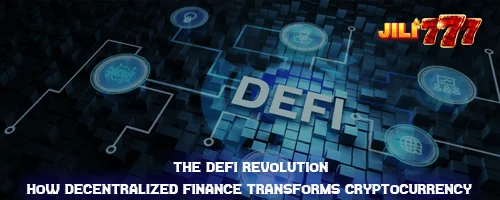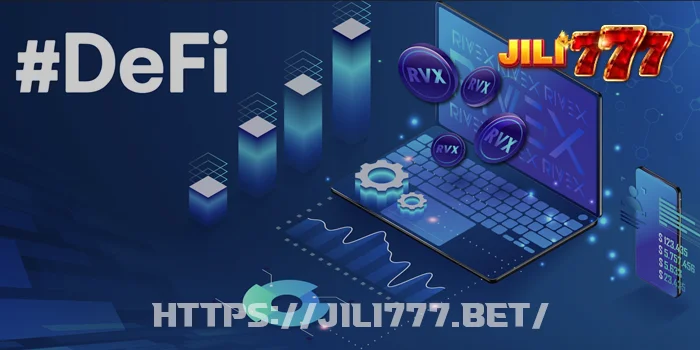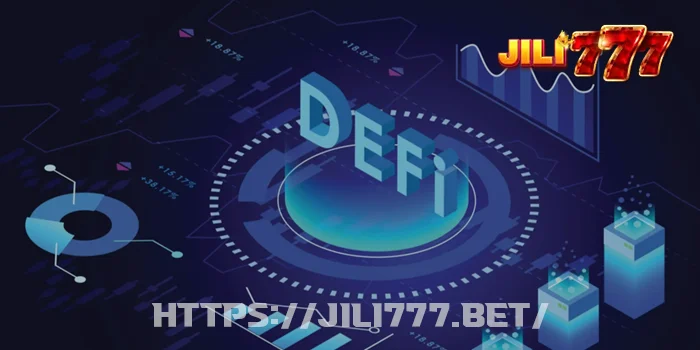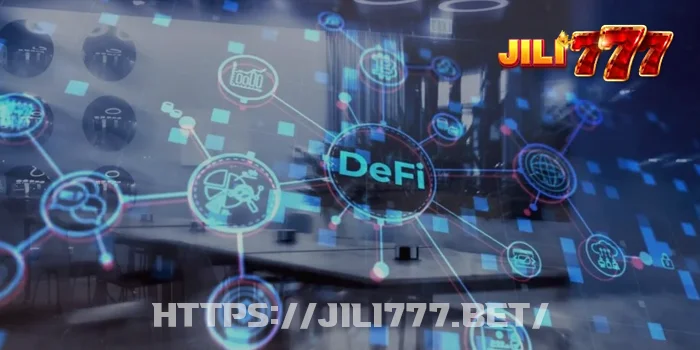
Decentralized Finance, or DeFi, has emerged as one of the most revolutionary innovations in the world of cryptocurrency. But what exactly is DeFi in cryptocurrency, and how is it changing the way we interact with financial systems? In this article, we'll explore the core aspects of DeFi, its benefits, challenges, and its potential to reshape the future of finance.

The journey of cryptocurrency started with the introduction of Bitcoin, the first decentralized digital currency. Bitcoin’s success paved the way for blockchain technology, which serves as the foundation of all cryptocurrencies. Blockchain allows decentralized, secure, and transparent financial transactions, essential features for DeFi platforms.
Bitcoin introduced the concept of decentralization, where no single entity controls the network. This philosophy of decentralization is the core of DeFi, enabling the creation of a financial system free from traditional banking intermediaries. With DeFi, users can engage in financial activities like lending, borrowing, and trading without relying on banks, thanks to blockchain technology.

So, what is DeFi in cryptocurrency? DeFi refers to a financial ecosystem built on blockchain technology, utilizing decentralized networks and smart contracts to offer traditional financial services without intermediaries like banks or brokers.
Smart contracts are self-executing contracts with terms directly written into code. They play a pivotal role in DeFi, ensuring that transactions are secure, transparent, and automated. Through smart contracts, DeFi eliminates the need for third-party verification, making financial processes faster and more efficient.
The DeFi ecosystem consists of several key components, including decentralized exchanges (DEXs), lending platforms, yield farming, and liquidity pools. These platforms offer innovative ways for users to earn cryptocurrency, trade assets, and access financial services without traditional banks.
The rise of DeFi brings several advantages, including financial decentralization, accessibility, and enhanced security. Let’s explore these benefits in detail:
One of the most significant benefits of DeFi is its ability to provide financial services to anyone with an internet connection. It removes the barriers imposed by traditional banking systems, enabling individuals in underbanked regions to access loans, savings, and investments.
DeFi platforms offer increased security and transparency thanks to blockchain technology. Since all transactions are recorded on an immutable ledger, users can trust that their funds are safe from tampering or fraud. Moreover, the decentralized nature of DeFi reduces the risk of centralized control or manipulation.
While DeFi presents numerous advantages, it also faces several challenges that could impact its future growth.
One of the biggest obstacles DeFi faces is scalability. As more users engage with decentralized platforms, networks can become congested, leading to slow transactions and high fees. Ethereum, the primary blockchain for DeFi, is currently working on solutions like Ethereum 2.0 to address these issues.
The lack of regulatory clarity around DeFi presents another challenge. Governments and financial institutions are still determining how to regulate decentralized financial platforms, which could lead to future legal and compliance issues.
While blockchain technology offers security, DeFi platforms are not immune to hacks and vulnerabilities, particularly in smart contracts. Any bugs or flaws in the code can be exploited, leading to significant losses for users. It's essential to conduct thorough audits of smart contracts to prevent such incidents.

As DeFi continues to evolve, its impact on global finance could be transformative. Many industry experts believe that DeFi could disrupt traditional banking systems, offering more efficient and accessible financial solutions.
The cryptocurrency space is constantly evolving, with innovations such as Layer 2 solutions, decentralized insurance, and cross-chain interoperability. These innovations will likely drive the next wave of growth in DeFi, enabling it to scale and serve a broader audience.
With the growing adoption of DeFi, the potential for global financial decentralization is becoming more realistic. By providing an alternative to traditional financial systems, DeFi could empower individuals worldwide to manage their finances independently, fostering a more inclusive and decentralized global economy.
In conclusion, Decentralized Finance (DeFi) is transforming the cryptocurrency landscape by offering a decentralized, secure, and transparent alternative to traditional financial services. While challenges like scalability and regulation remain, the future of DeFi looks promising as new innovations continue to emerge. For those looking to delve deeper into cryptocurrency trends, check out how blockchain is shaping crypto casinos.
If you're interested in learning more about online gambling and how cryptocurrency impacts it, be sure to explore cryptocurrency trends and online transactions. Additionally, understanding the basics of cryptocurrency can help in grasping the broader DeFi movement. You can read more on cryptocurrency basics here.
Copyright Notice : This article is an original work by JILIBET | Philippines' Premier Live Casino & Free Slot Games. It follows the CC 4.0 BY-SA copyright agreement. For reprinting, please attach the original source link and this notice.Collaborating with world-renowned game designers ensures games are not only captivating but also rich in graphics and storytelling, featuring the latest gaming technology.